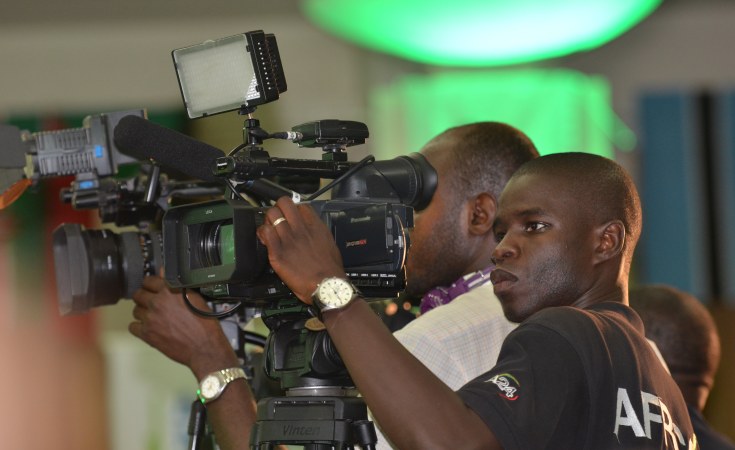Vienna — After three days in detention, The Gambia's National Intelligence Agency has freed journalist Abdoulie John.
He was held while officers searched his laptop for evidence of wrongdoing, according to local sources, but was released just before a 72-hour deadline would have expired, after which authorities would have to charge or release him. The investigation against him continues, however, and John must return to NIA headquarters on Monday.
It's not yet clear what John's alleged crime might be, though sources say the questioning is linked to the journalist's work for the Jollof News website , which is systematically critical of the Gambian government. John also contributes to the Associated Press, which has protested his detention.
IPI Deputy Director Anthony Mills said: "Abdoulie John has been under investigation by the National Intelligence Agency for over a month without learning what the charges against him are. We call on the Gambian authorities to cease their harassment of Abdoulie John and other journalists."
John's recent saga with the NIA began on Dec. 9, 2012, when he was detained by officials while reporting on the release of Senegalese soldiers who had been captured by rebels in Casamance. The soldiers' freedom had been negotiated by a Roman Catholic group that organized the convoy that John was accompanying. While on the trip, John had an argument with Sulayman Gassama, the official statehouse photographer.
Because of the dispute, security officials sent a military truck to pick up John, who was detained for several hours in the vehicle, he told IPI at the time. John was later transferred to Sibanor police station, and then to NIA headquarters, where he was detained overnight, John said.
He was subsequently bailed but has had to check in with the NIA regularly for questioning. At first the questions were about the December incident. But according to John's attorney, Lamin Camara, his client said that investigations have since "taken a turn" and are now focused on his journalistic work. This is not the first time that John has been harassed because of his work: In 2010 John said he received several threatening phone calls and text messages, which he believed were linked to his work for Jollof News.
John's treatment by authorities in the small West African country is not unusual. Last year, three media houses were shut down as a result of their reporting, and two journalists faced death threats and a weeks-long police investigation , although the charges against them were eventually dropped.
On Tuesday, Jan. 8, Gambian President Yahyah Jammeh made comments that point to his hostility toward the media and press freedom.
Jammeh rejected a number of demands that the European Union had made ahead of a an "Article 8" political dialogue between the EU and The Gambia that was scheduled for Friday. It was to be one of the regular consultations that are provided for under the Cotonou Agreement, which is the framework for development cooperation between the EU and members of the African, Caribbean and Pacific Group of States, including The Gambia.
The list of EU demands rejected by President Jammeh included a call for The Gambia to "allow the free operation of independent media in The Gambia within a deadline of one month"; the "removal of barriers to the registration and licensing of media"; the "removal of restrictions on accessing and sharing information electronically"; and the "revision of laws on freedom of expression and media regulation," The Point reported .
Jammeh totally rejected the 17 EU points of action and said tomorrow's meeting would not take place, reports said. According to an article in The Observer, "[Jammeh] pointed out that in some countries, journalists are beaten and killed and nobody is saying anything." He said if they [the EU] think that Gambia would sacrifice the wellbeing of the majority of the population for the interest of minority, they are in the wrong place.
The Observer quoted Jammeh as saying: "If a journalist causes an offence, we will detain and prosecute him. They are not better than other Gambians. They, [the detractors] know that the quickest way to destabilise a country is to use the media and those newspapers that are being closed, we are going to keep them closed because now that they are talking about it they will remain closed. That is my message to them."
Private radio station Teranga FM was closed in August 2012 because it aired a show that translated English news into local languages. In September, NIA officers shut down The Daily News and The Standard, privately-owned English language newspapers that had been critical of government policies. All three media houses remained closed.


